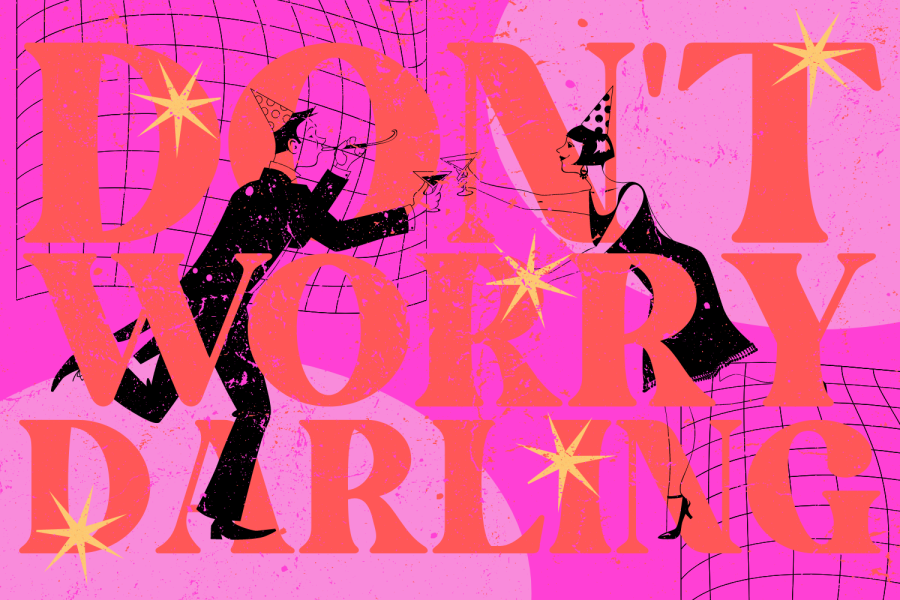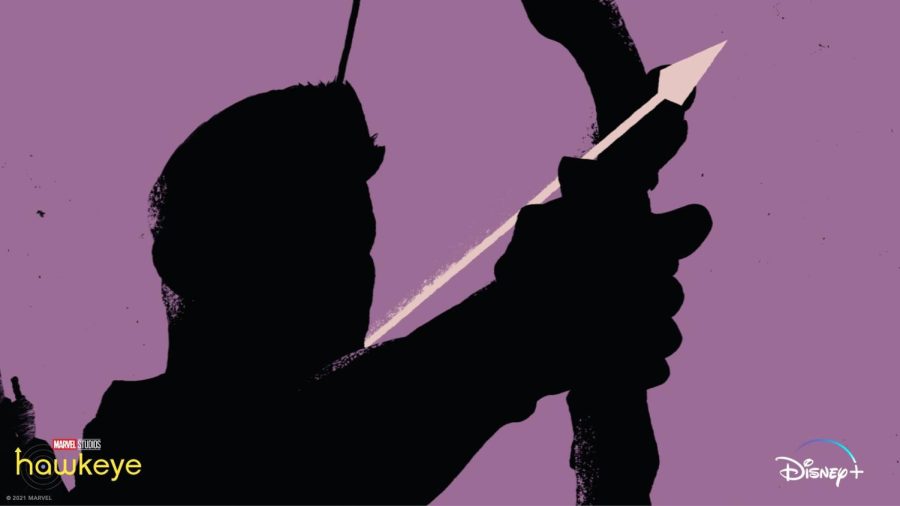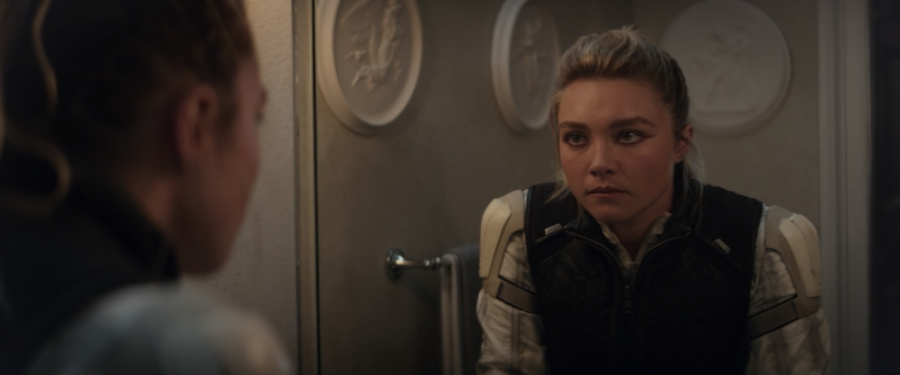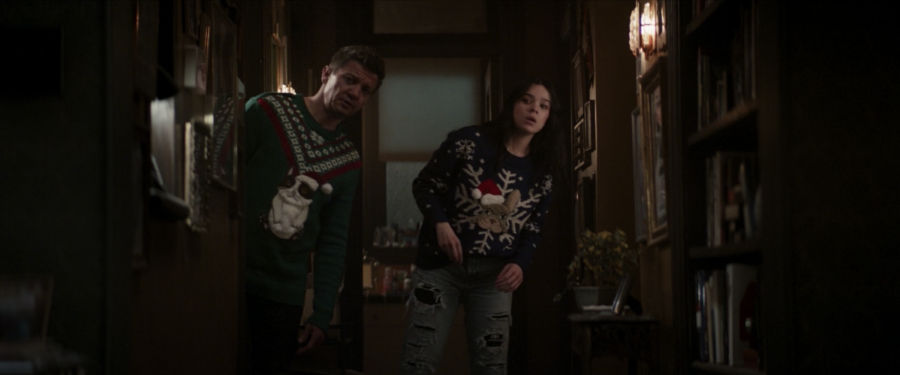After much pop culture drama and online discourse, the long-awaited Olivia Wilde thriller “Don’t Worry Darling” was finally released in theaters. With mixed reviews and immense controversy, I will be diving into why the film is worth seeing despite the lack of character development and a messy plot.
“Don’t Worry Darling” explores the lives of Alice (Florence Pugh) and Jack (Harry Styles) in a seemingly utopian 1950s style town called Victory. Jack and the other men in the community go to work at the secretive Victory Project while their wives live as luxurious housewives. Alice soon begins to realize that something darker is going on under the surface of the Victory Project and begins to explore what happens when her husband leaves for work each day. She eventually discovers that the project is a simulation where men in the modern day pay to enter an idealized 1950s community with the wife of their choosing. The wives lie strapped to their beds in real life with their eyes held open as they are immersed in the simulation against their will, forced into it by their “husbands.” The men lie next to them also immersed in the simulation but they must leave each day to go back to reality and work in order to afford participation in the Victory Project. After Alice discovers the truth, she kills Jack and is able to escape, leaving the Victory Project behind.
One major issue of the film lies in the lack of character development. I would’ve appreciated seeing more background on the secondary characters in the film. While Alice and Jack were the focal points, the other characters were still important to the plot. Chris Pine’s character Frank was the founder of the Victory Project, yet we don’t know many details about how or why he created it. His performance was great, but I would’ve appreciated learning more about his motivations and what led him to be in this position. Additionally, Gemma Chan played his wife Shelley and we saw even less character development from her. In one scene, she argues with Alice and defends her husband, and then later in the film she murders Frank, the same man that she was defending. I would have loved to see how Shelley transformed from defending Frank to wanting to kill him.
The acting in the film was a mixed bag with some stand-out performances and others that fell flat. Florence Pugh carried this movie with her excellent acting skills. She was truly the star and stood out amongst the rest of the cast. On the other hand, Harry Styles’ acting did not impress me. When I saw the film in theaters on opening night, I could hear audience members giggle at Styles in his more serious scenes. As a fan of his, I hate to say this, but the film would’ve been more impactful with a more seasoned actor in this leading role. With Styles and Pugh playing significant others you could really see the contrast between their acting skills and experience in their interaction on screen.
Additionally, although the film’s director Olivia Wild stated that the movie was intended to portray feminist themes, the movie only bears hints of this motif, disappointing and concerning fans and critics. In a 2021 interview with “Vogue,” Wilde commented on the issue of modern men craving submissive wives and traditional gender roles that we see in the 1950s.
“[People] realize how rarely they see female hunger, and specifically this type of female pleasure,” Wilde said.
She said she hoped this message would come through during the sex scenes in the movie’s simulation. Ultimately, this goal backfired due to how none of the intimacy in the film was consensual as Alice was held against her will. While she loosely portrayed feminist ideals by scripting Alice to question the men in authority, she definitely should have considered implications of the way in which she tried to do so to strengthen the theme and eliminate these problematic aspects of the film. Many critics criticized this lack of depth as well as the film’s empty white feminism. In the movie, men encapture white women to “protect” them against the modern day, but the film fails to “protect” Black women, as the only Black woman in the movie, Margaret (KiKi Layne), is killed off.
In terms of the actual plot of the film, I enjoyed the storyline but think they could’ve gone into more depth for some of the concepts and themes that they explored. Many things went unexplained in the film and not in a good way. For example, an earthquake-like phenomenon occurs at seemingly random times throughout the film, but there is never any explanation for these occurrences. Additionally, in the real world if Alice has not left her home for what seems like months, wouldn’t her family or friends come looking for her? In comparison to recent thrillers like Jordan Peele’s “Nope,” where every detail is thought-out, this film lacked depth. I also found an issue with the timing of the major plot twist. Over half of the film was spent leading up to the Victory Project’s reveal, which was unnecessary. It felt like much of the excitement and plot occurred in the last thirty minutes and I would’ve preferred if that happened sooner. Overall, the plot was a little messy and awkwardly timed.
Despite these issues, I would still recommend seeing “Don’t Worry Darling.” It was entertaining to watch in anticipation of the major twist, even if the build-up was a little too long. The visuals were compelling and the film was well shot. Additionally, it was fun seeing so many familiar actors working together on this project. The film was reminiscent of a “Black Mirror” episode which is a positive in my book. Seeing “Don’t Worry Darling” is an enjoyable theater experience, especially if you aren’t going in with high expectations or focusing on the details. If not for anything else, at least go just for the captivating performance from Florence Pugh.










